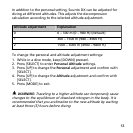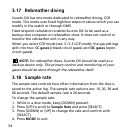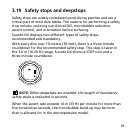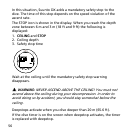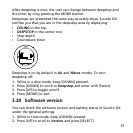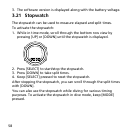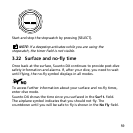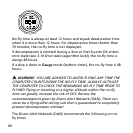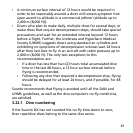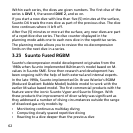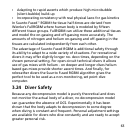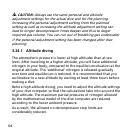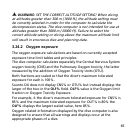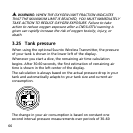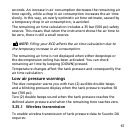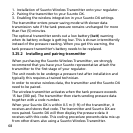
•
A minimum surface interval of 12 hours would be required in
order to be reasonably assured a diver will remain symptom free
upon ascent to altitude in a commercial jetliner (altitude up to
2,400 m (8,000 ft)).
•
Divers who plan to make daily, multiple dives for several days, or
make dives that require decompression stops, should take special
precautions and wait for an extended interval beyond 12 hours
before a flight. Further, the Undersea and Hyperbaric Medical
Society (UHMS) suggests divers using standard air cylinders and
exhibiting no symptoms of decompression sickness wait 24 hours
after their last dive to fly in an aircraft with cabin pressure up to
2,400 m (8,000 ft). The only two exceptions to this
recommendation are:
•
If a diver has less than two (2) hours total accumulated dive
time in the last 48 hours, a 12 hour surface interval before
flying is recommended.
•
Following any dive that required a decompression stop, flying
should be delayed for at least 24 hours, and if possible, for 48
hours.
Suunto recommends that flying is avoided until all the DAN and
UHMS guidelines, as well as the dive computer’s no-fly conditions,
are satisfied.
3.22.1 Dive numbering
If the Suunto DX has not counted the no-fly time down to zero,
then repetitive dives belong to the same dive series.
61



